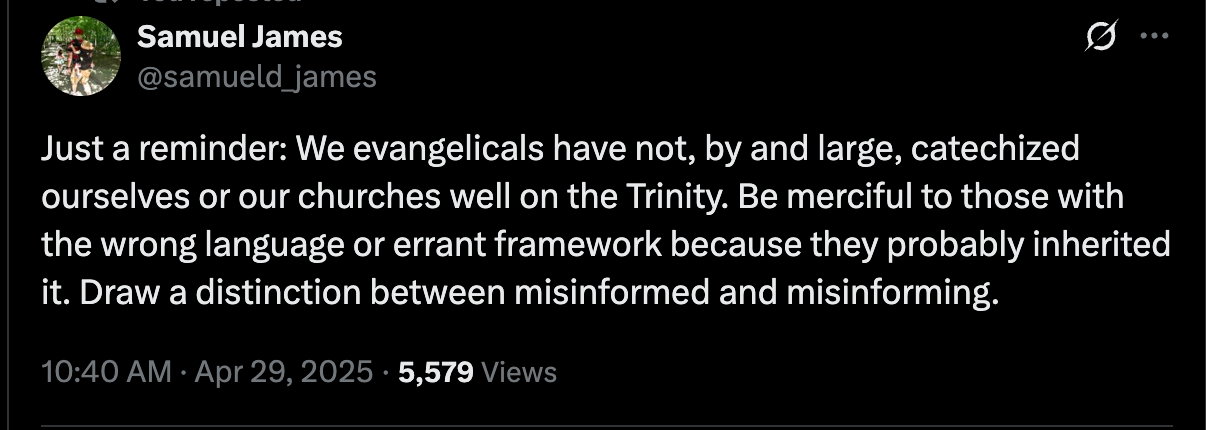Merciful Theological Dialogue with Firm Convictions
We need to be gracious and merciful when it comes to theology. Everyone begins their theological journey at different points, and Christ saves us through His mercy, not because of our intellectual comprehension of theological concepts.
Nevertheless, when someone persistently and stubbornly remains in error regarding the natures of Christ, affirming Nestorianism, we must maintain the truth with conviction about our Savior Jesus Christ. There exists a clear distinction between someone making mistakes while learning and someone who confidently holds to error while claiming to be a teacher of truth or attempting to instruct others in public theology.
It is entirely acceptable to be wrong. Indeed, it is commendable to learn. I am certain that I hold incorrect positions in some areas, and I would welcome further instruction. However, if I am challenged and upon reflection recognize my error, it is good and proper for me to acknowledge, "I was wrong. Thank you for helping me see this more clearly!"
Regarding the Nestorian question discussed over the past few days, I was somewhat surprised by arguments presented by public theological figures:
One claimed God was not born, among other assertions, effectively affirming Nestorianism in its particular arguments.
Two others claimed that the Four Gospel Books contradict Paul, suggesting Paul does not mention birth from a woman (despite evidence in Galatians).
Both positions are theologically incorrect. Stubbornly maintaining unorthodox positions does not demonstrate boldness, but rather characterizes one who risks becoming heretical.
That said, I am mindful of parallels to the 2016 Trinity Debate. We collectively learned much through that discourse, and it was entirely understandable to have held mistaken notions at that time. By 2017, most began to acknowledge, "I should express this differently. This formulation is more accurate," and so forth. Now in 2025, I observe books, churches, and conferences highlighting the Nicene Doctrine of God.
Therefore, I remain hopeful that our recent Christological discussion might lead to deeper worship, clearer understanding, and proper reverence for the eternal Son from the Father, true God from true God, who was born of the Virgin Mary.





Well said, Wyatt. Thanks for this and your last few pieces!
Well said. I've been thinking lately of the need to distinguish between incomplete knowledge (epitomised by Apollos), false teaching and heresy. Our responses to these three need to be graded and appropriate....